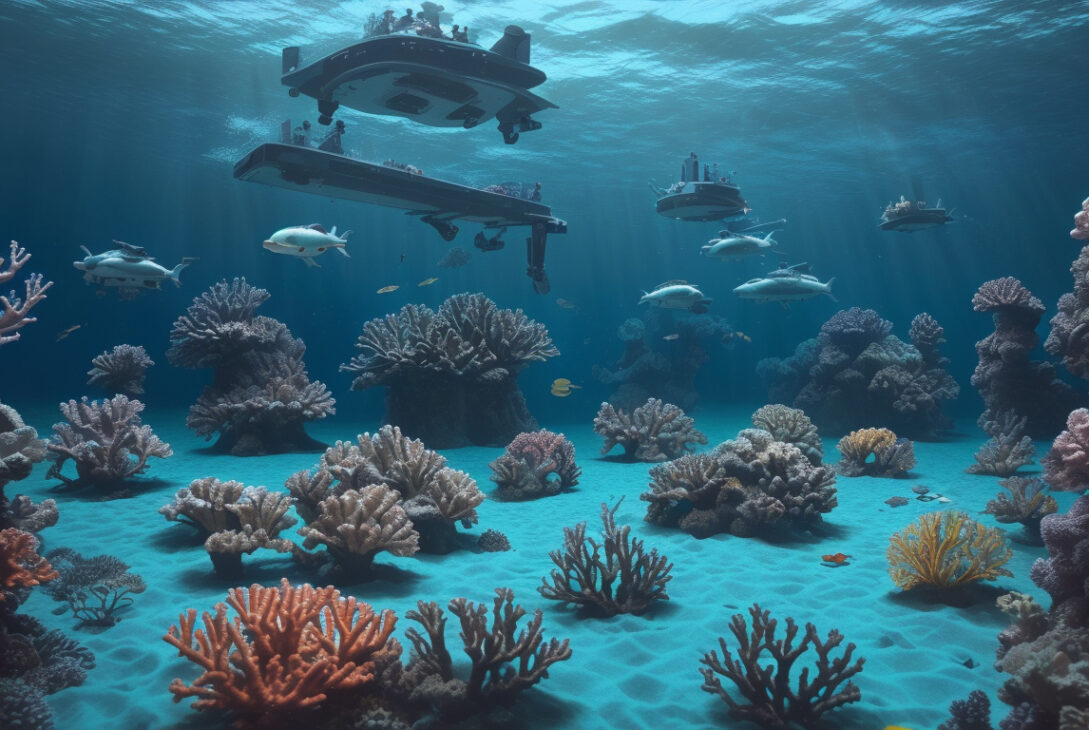Northwestern Michigan College Partners with Grand Valley State and Notre Dame for Innovative Marine Technology Program
Traverse City, MI — Northwestern Michigan College (NMC), through its Great Lakes Water Studies Institute (GLWSI), has announced a groundbreaking partnership with Grand Valley State University (GVSU) and the University of Notre Dame to launch a pioneering training program focused on the deployment of autonomous underwater vehicles (AUVs) enabled by artificial intelligence (AI). This collaboration, supported by a substantial three-year grant of $873,634 from the National Science Foundation (NSF), aims to position all three institutions at the forefront of emerging marine technology education.
A Step Forward in Marine Technology Education
The initiative is part of the NSF’s Experiential Learning in Emerging and Novel Technologies (ExLENT) program, designed to develop training pathways in rapidly evolving technological fields. The joint effort between NMC, GVSU, and Notre Dame targets the marine technology sector, with a special emphasis on advancing the capabilities and applications of AUVs integrated with AI.
John Lutchko, Director of GLWSI, highlighted the significance of this program, noting that it will allow NMC to expand its existing marine technology curriculum by incorporating AUVs directly into student learning experiences. “Previously, our students only had brief exposure to such technology, like the one-day demonstration provided by the Michigan State Police,” Lutchko said. “Now, they will have the opportunity to engage in a comprehensive academic course centered on these autonomous systems.”
This new curriculum marks a transition from the college’s traditional use of remotely operated vehicles—manually controlled by operators from boats—to autonomous platforms capable of independently executing complex underwater tasks. AI integration will further enhance these capabilities by enabling real-time mission adaptations based on environmental conditions and sensor feedback.
Enhancing Research and Training Facilities
The program aligns closely with recent developments in Traverse City, including the groundbreaking of the Freshwater Research and Innovation Center (FRIC), which promises to fill a geographic and resource gap in aquatic research infrastructure. Stuart Jones, Executive Director of GVSU’s Annis Water Resources Institute, noted that FRIC was a catalyst for establishing this partnership. “The center offers a vital platform for aquatic research in Michigan, and this grant is a tangible first step toward collaborative projects engaging NMC and local stakeholders,” Jones said.
The hands-on training component will take place in Traverse City, utilizing cutting-edge facilities and assets such as GVSU’s research vessel, the W.G. Jackson. The program’s structure entails a six-week curriculum, combining four weeks of online instruction led by NMC with input from GVSU and Notre Dame, followed by two weeks of direct experiential learning deploying AUVs in real-world conditions on the Great Lakes.
Leveraging Institutional Strengths for a Comprehensive Approach
Each partner brings unique expertise to the project: NMC contributes its strategic location on the Great Lakes and recognized marine technology capabilities; GVSU offers extensive aquatic ecology research experience and water resource management; and Notre Dame provides specialized knowledge in artificial intelligence.
The collaboration is expected to run four cohorts over the grant’s three-year span, each cohort accommodating 18 students. This approach aims to cultivate a new generation of professionals skilled in cutting-edge marine technology applications, enhancing the region’s scientific and educational standing.
Long-Term Impact and Institutional Growth
Beyond the grant’s duration, Northwestern Michigan College anticipates sustained benefits through the acquisition of advanced equipment, such as autonomous underwater vehicles, which will remain integral to its educational offerings. The prestige of securing a competitive NSF grant also elevates the college’s profile in scientific and academic communities.
John Lutchko emphasized the value of expanding NMC’s network through the involvement of a distinguished institution like Notre Dame. “This partnership not only strengthens existing relationships with organizations like GVSU but also broadens our reach and visibility, opening doors for future collaborations,” he said.
This innovative program signifies a major advancement in marine technology education in the Great Lakes region, combining expertise across institutions to prepare students for the future challenges and opportunities in underwater autonomous research and environmental monitoring.










